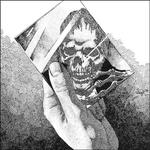
Oneohtrix Point Never Replica
(Software)
Oneohtrix Point Never continues his (for it is a he, Daniel Lopatin) alliterative purple patch with another beautifully disturbing and haunting album. Following 2009’s wonderful Rifts and 2010’s even more wonderful Returnal comes Replica, an album that differs somewhat from its predecessors, while retaining a sense of authorship and style – a rarity in the usually anonymous world of electronica. Lopatin has in recent years become something of a poster child for this particular strain of music – think of Aphex Twin’s similar status in the early 1990s (although Oneohtrix is a far less confrontational prospect than Aphex ever was). Where Replica differs is in its regard for structure and pace. The pieces on Returnal and especially on Rifts drifted in a kind of timeless vortex, where timbre, tonality and texture took precedence over form. Here though, only one track, closer Explain, breaks the five minute barrier. The rest are tightly structured pieces that suggest a possible new direction for Oneohtrix: while not exactly pop songs, they do exhibit a keen understanding of what makes a pop song work, a trait he shares with the some of the great pop/hip-hop producers of our times.
The most successful pieces here seem to enter the consciousness, as much as they are interpreted aurally. They suggest a mood rather than present an explicit emotion. A case in point is album opener, Andro. It begins with a drone – a clear reference to earlier works. A high synth motif plays repetitively over the top; it sounds like it’s coming from another time, drifting and circling, with a melancholy grace. Snatches of sampled voices appear, half-heard through the static. Then in a jump-cut the track’s last minute suddenly replaces the reverie with looped percussion and a synth screech that sounds like a prehistoric bird. All this in less than four minutes. Many of the tracks here share a sound with Scottish electronica group Boards Of Canada. They too have a sense of timelessness and a particular fondness for vintage analogue synthesizers that render a warmth to the songs/pieces. Remember, possibly the album’s best track (although to talk in such terms is perhaps pointless, as the album clearly benefits from being heard in its entirety), starts with a vocal drone that could be vintage Eno, before a sampled chant of “Remember remember...” starts the steady build-up of layers. No sooner has the song reached some sort of peak than it fades, like a dream that leaves a ghost of a memory. The piano refrain of the title track is the album’s most explicit nod to melody, but even that is subsumed by noise and drone, as if heard through a wall.
Replica is the first Oneohtrix album to make significant use of sampling. However, the samples are so cut up, distorted and corrupted as to be unrecognizable as their source material. Nassau, for example, loops a vocal sample, but it sounds entirely unlike any human voice. The John Carpenter-esque synths on this track are particularly lovely, but like Carpenter’s, they leave a queasy feeling of unease, like Freud’s Uncanny – a feeling that the familiar is somehow not what it seems. These songs seem to be coming from a whole other place, using repetition to dislocate sounds from their origins, working their way into the unconscious mind, planting seeds there that will flower into dreams that will only be half-remembered on waking. It’s another brilliant album from one of the genre’s foremost artists.
11 November, 2011 - 05:28 — David John Wood